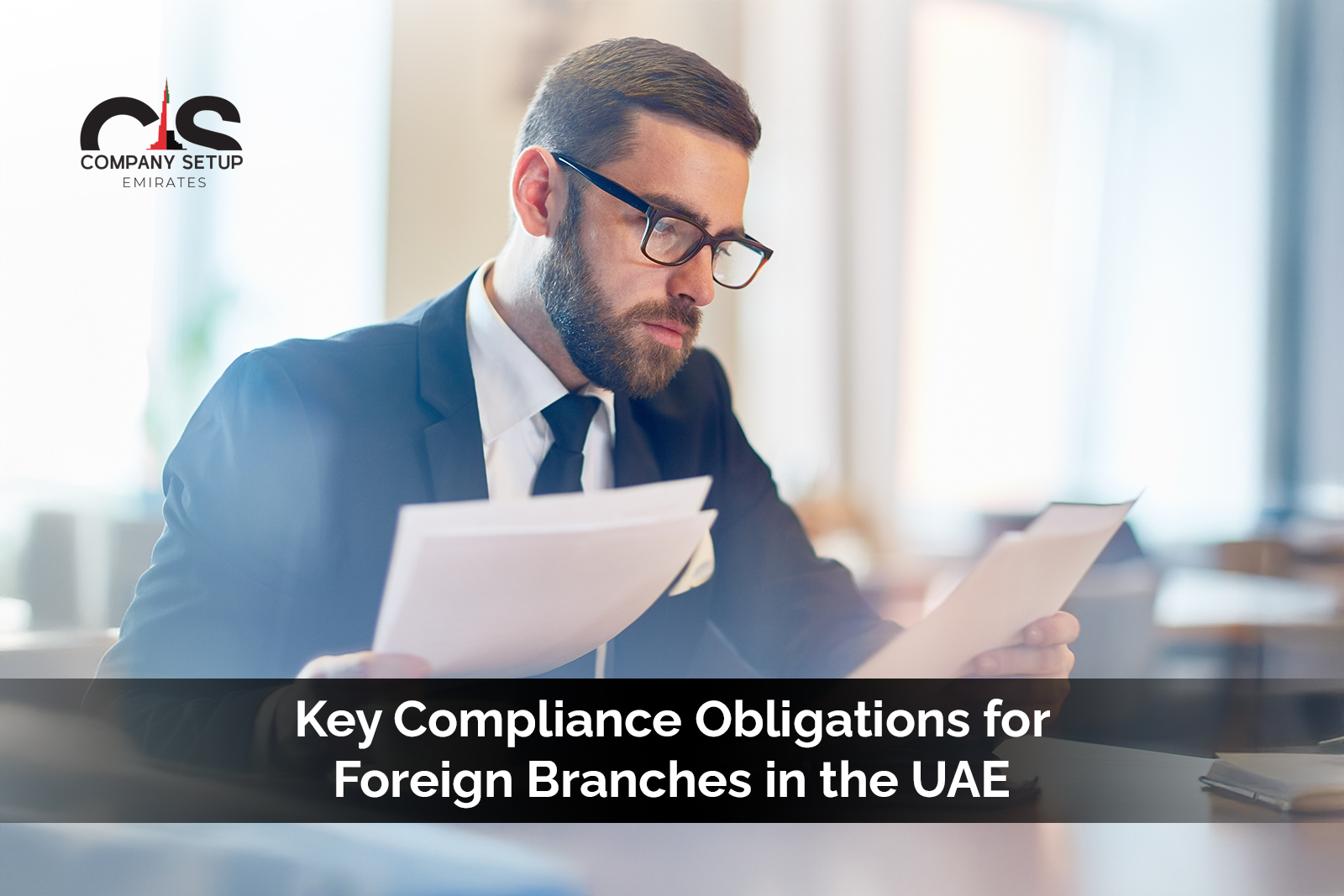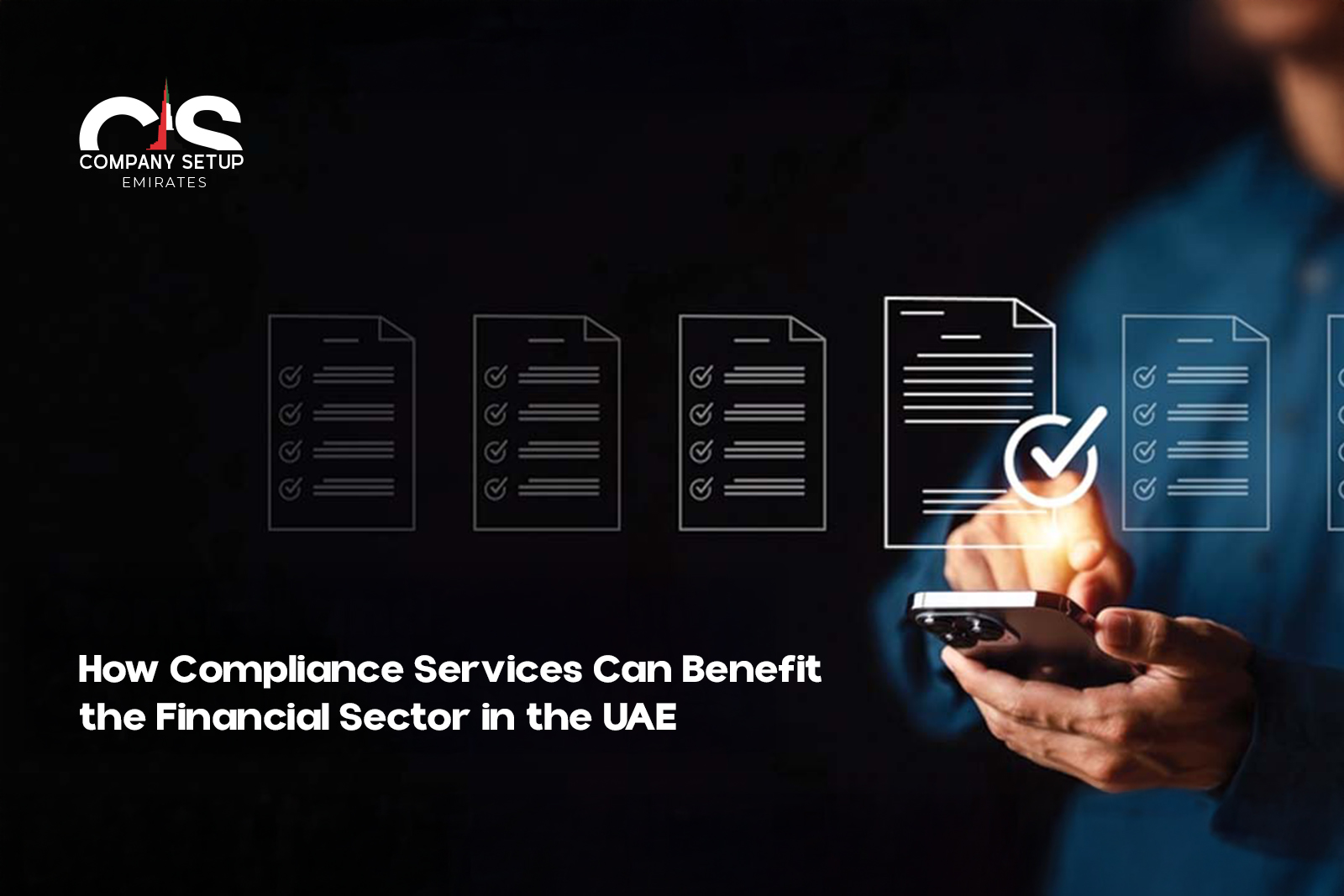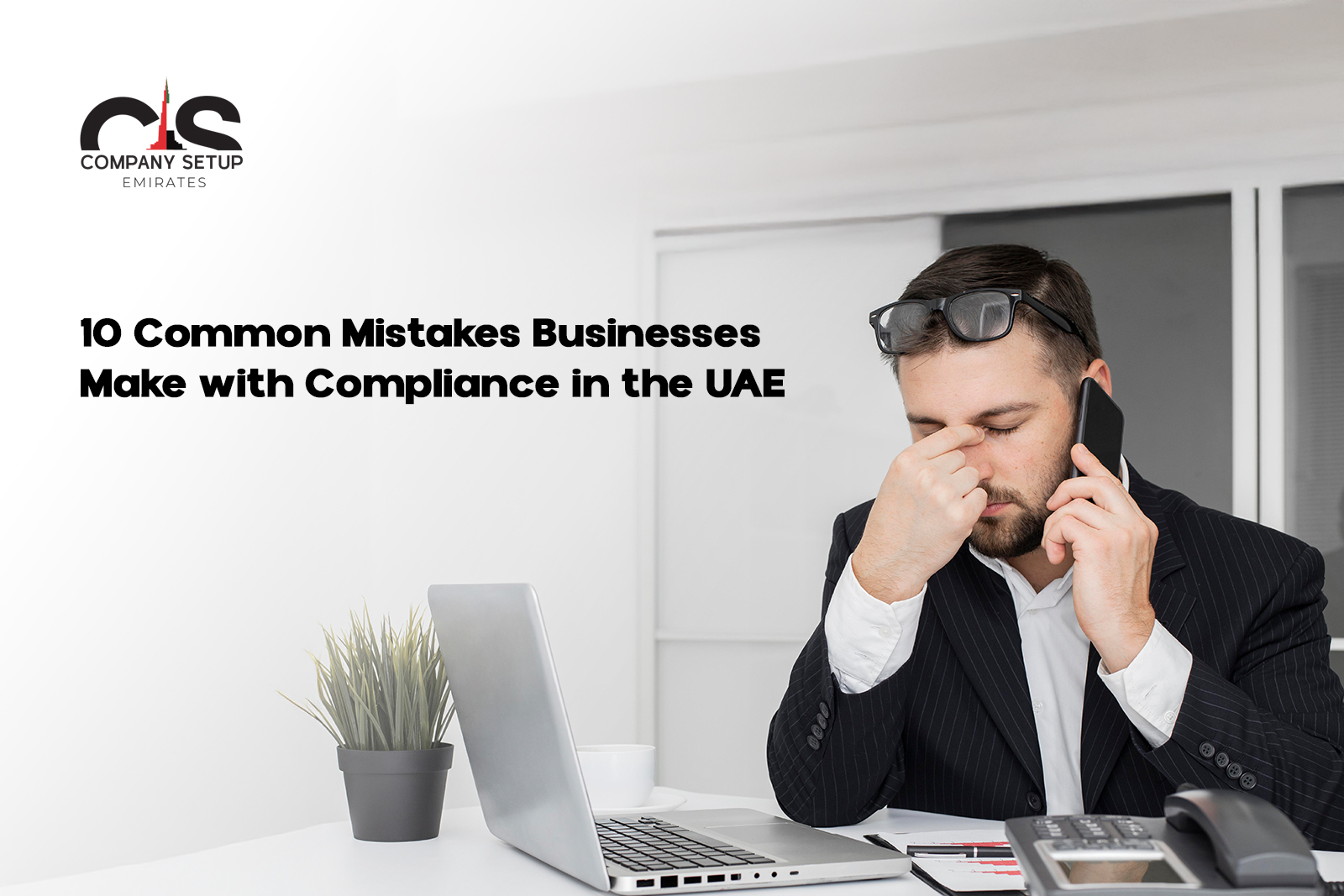Expanding into Dubai or anywhere in the UAE is exciting, but overlooking compliance can quickly turn opportunities into costly setbacks. From missed deadlines to licensing oversights, business compliance mistakes in the UAE are more common than many entrepreneurs realise.
Whether it’s a startup still learning the ropes or an established company scaling operations, failing to follow the right rules can result in fines, license suspension, or even reputational damage.
This blog explores 10 of the most common compliance errors in Dubai businesses, helping you spot the red flags before they become roadblocks. Think of it as your practical UAE compliance guide for companies, a roadmap to keep your operations safe, legal, and future-ready in 2025 and beyond.
What is Business Compliance in the UAE?
Business compliance in the UAE refers to a company’s ability to follow the country’s legal, financial, and regulatory requirements set by authorities like the Department of Economic Development (DED), the Federal Tax Authority (FTA), and the Ministry of Human Resources and Emiratisation (MOHRE). It covers licensing, timely renewals, VAT and corporate tax filings, accounting, audits, and anti-money laundering (AML) obligations.
For example, if a retail business in Dubai operates with a license that hasn’t been renewed on time, it could face fines, visa blocks, and even suspension of operations. Similarly, a consulting firm that fails to register for corporate tax risks faces penalties and reputational damage. In short, business compliance in the UAE ensures smooth operations, builds trust with regulators and clients, and protects a company’s long-term sustainability.
Most Common Mistakes Businesses Make with Compliance in the UAE
Here are some of the most common mistakes businesses make with compliance in the UAE and how to fix them:
1. Choosing the Wrong Business Structure or License
Many businesses select their trade license based on initial ideas or costs without thoroughly mapping activities. Operating outside the licensed scope is a violation that can lead to fines, suspension, or even closure. Regulators scrutinise licenses closely to protect market integrity and consumer safety.
How to Fix: Conduct detailed research or consult experts to identify precisely which license fits your planned activities. Regularly review and update your licensing as your business evolves.
2. Delays and Difficulties in Opening Corporate Bank Accounts
Banks impose stringent Know Your Customer (KYC) and Anti-Money Laundering (AML) checks. Incomplete paperwork, lack of transparency about ownership or business activities, and weak compliance histories lead to delays or outright rejections, affecting cash flow and growth.
How to Fix: Prepare comprehensive and accurate documentation early, maintain good compliance records, and work with banking relationship managers or business consultants with UAE market experience.
3. Failing to Register for VAT and Corporate Tax on Time
Since the introduction of VAT in 2018 and the launch of Corporate Tax in 2023, many businesses have missed registration deadlines or misunderstood their tax filing obligations. Non-compliance can bring hefty fines, interest on unpaid taxes, and damage business credibility with tax authorities.
How to Fix: Track registration deadlines based on turnover thresholds. Register promptly on EmaraTax and file returns timely. Engage tax advisors to ensure ongoing compliance and optimise filings.
4. Neglecting Proper Accounting, Audit, and UBO Reporting
Inaccurate bookkeeping, missing financial audits, and failure to disclose Ultimate Beneficial Owners reflect poorly on governance and raise red flags for regulators. These errors could lead to penalties, audits, or license revocation.
How to Fix: Invest in robust accounting systems and skilled accountants. Conduct annual audits as required, keep UBO information updated, and perform internal controls regularly.
5. Underestimating the Need for Additional Regulatory Approvals
Many sectors require specialised permits beyond the trade license. Overlooking approvals in fields like healthcare, real estate, or finance can result in severe penalties and operational disruptions.
How to Fix: Identify industry-specific regulatory bodies and compliance requirements before starting operations. Liaise with legal advisors to secure all necessary permits in advance.
6. Lack of Preparedness for Anti-Money Laundering (AML) Regulations
The UAE has strict AML laws to prevent financial crime. Businesses that fail to implement adequate customer due diligence, record-keeping, and transaction monitoring risk fines, operational bans, and legal action.
How to Fix: Develop and enforce AML policies tailored to your business profile. Train employees regularly and use technology solutions for transaction monitoring and risk assessments.
7. Missing Trade License Renewal Deadlines
Failure to renew trade licenses on time often happens due to administrative negligence. This causes fines, business suspension, disrupted operations, and issues with visa renewals.
How to Fix: Maintain a detailed compliance calendar noting all deadlines. Automate reminders using software or rely on professional service providers to handle renewals.
8. Submitting Incomplete or Incorrect Documentation
Applicants often submit forms missing crucial information or with non-attested documents. These errors cause delays, multiple resubmissions, and increased costs, frustrating entrepreneurs.
How to Fix: Double-check all submissions against checklists and regulatory specs. Use licensed typing centres or consult expert business setup services to prepare documents accurately.
9. Poor Internal Compliance Management
Without proper compliance structures, companies may fail to monitor regulatory changes or conduct internal checks. This leads to unintentional violations, employee non-compliance, and reputational damage.
How to Fix: Establish a dedicated compliance function or assign responsible personnel. Conduct periodic training, internal audits, and maintain open communication channels to promote adherence.
10. Ignoring Regulatory Changes and Updates
The UAE legal landscape is dynamic, with frequent regulatory amendments. Businesses ignoring these risks are falling out of compliance due to outdated policies or missed filings.
How to Fix: Subscribe to official regulatory updates from MOHRE, the Federal Tax Authority, and others. Engage with industry bodies and maintain contacts with legal advisors to remain informed and compliant.
Implementing these fixes with the help of professionals and technology solutions significantly reduces compliance risks and supports sustainable business growth in the UAE.
Business Compliance Checklist in the UAE (2025)
Here’s your checklist to ensure your compliance part is done right:
- Renew the trade license on time to avoid fines or suspension.
- Register for VAT and Corporate Tax, and file returns promptly.
- Maintain accurate books of accounts and conduct annual audits if required.
- Keep UBO (Ultimate Beneficial Owner) information up to date.
- Implement AML (Anti-Money Laundering) policies, due diligence, and reporting.
- Pay employee salaries via the Wage Protection System (WPS).
- Secure additional permits for regulated industries (healthcare, real estate, finance, etc.).
- Provide MOHRE-approved contracts and mandatory health insurance for employees.
- Track and renew employee visas and immigration documents on time.
- Review and update compliance policies every 6–12 months to match new laws.
Conclusion
At the end of the day, compliance isn’t just about ticking off requirements. It’s about protecting your business and giving it the foundation to grow with confidence. From licensing to taxation, from AML to audits, the rules are clear, and so are the consequences of ignoring them. By prioritising regulatory compliance for the UAE business setup, companies can save themselves from unnecessary risks and build stronger credibility in the market.
As we step deeper into corporate compliance in the UAE 2025, the message is simple: stay informed, stay prepared, and avoid compliance mistakes in UAE companies before they turn into roadblocks. In a market as dynamic as the UAE, businesses that treat compliance as a strength, not a burden, will always be the ones that thrive.
You don’t have to navigate it all alone. Company Setup Emirates is here to guide you every step of the way, whether it’s ensuring full corporate compliance in the UAE 2025, helping you avoid compliance mistakes in UAE companies, or giving you a tailored roadmap for sustainable growth. With the right support, your compliance burden turns into a business advantage.
Ready to secure your setup? Partner with Company Setup Emirates today.









